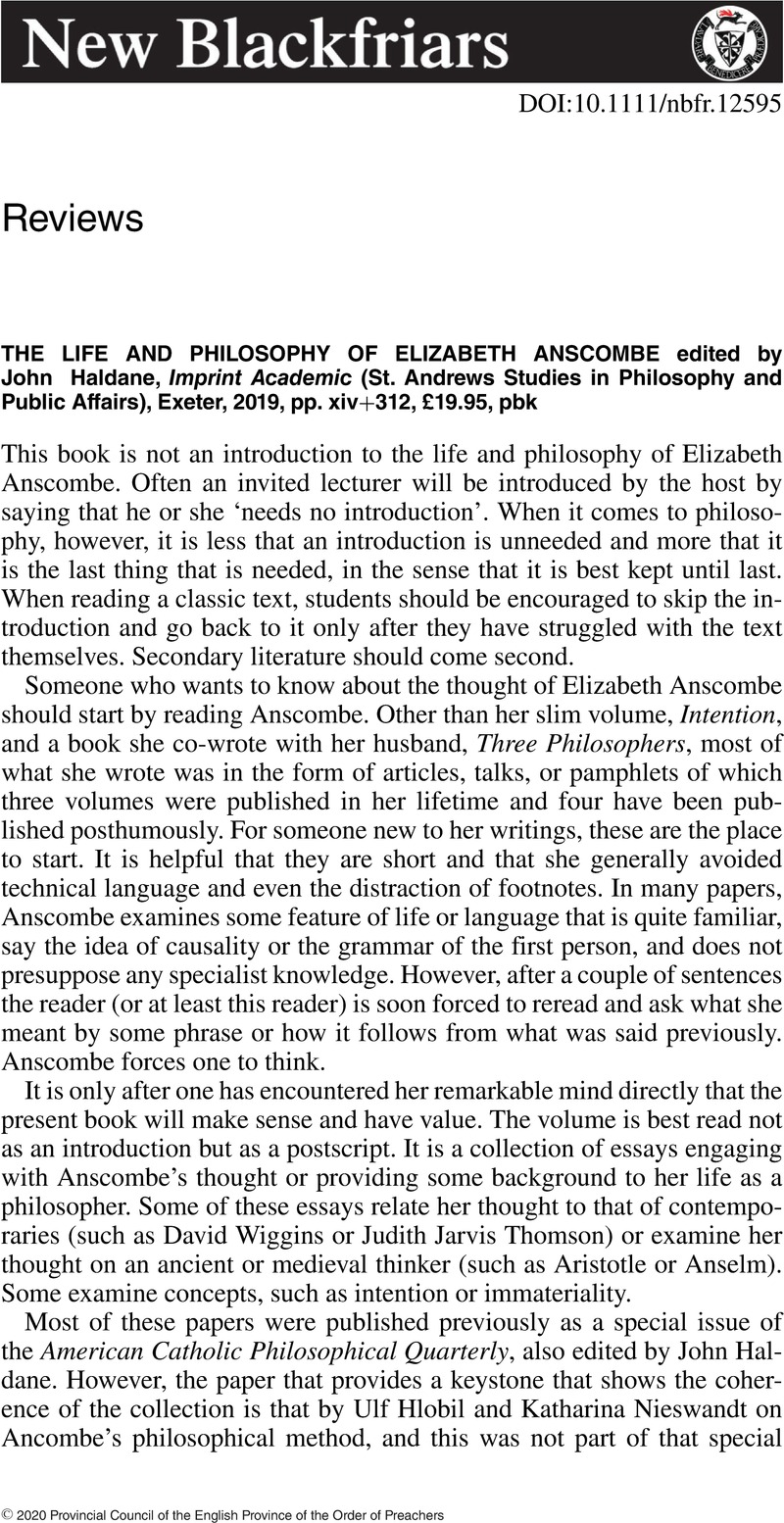No CrossRef data available.
Article contents
The Life and Philosophy of Elizabeth Anscombe edited by John Haldane, Imprint Academic (St. Andrews Studies in Philosophy and Public Affairs), Exeter, 2019, pp. xiv + 312, £19.95, pbk
Review products
The Life and Philosophy of Elizabeth Anscombe edited by John Haldane, Imprint Academic (St. Andrews Studies in Philosophy and Public Affairs), Exeter, 2019, pp. xiv + 312, £19.95, pbk
Published online by Cambridge University Press: 01 January 2024
Abstract
An abstract is not available for this content so a preview has been provided. Please use the Get access link above for information on how to access this content.

Information
- Type
- Reviews
- Information
- Copyright
- Copyright © 2020 Provincial Council of the English Province of the Order of Preachers

